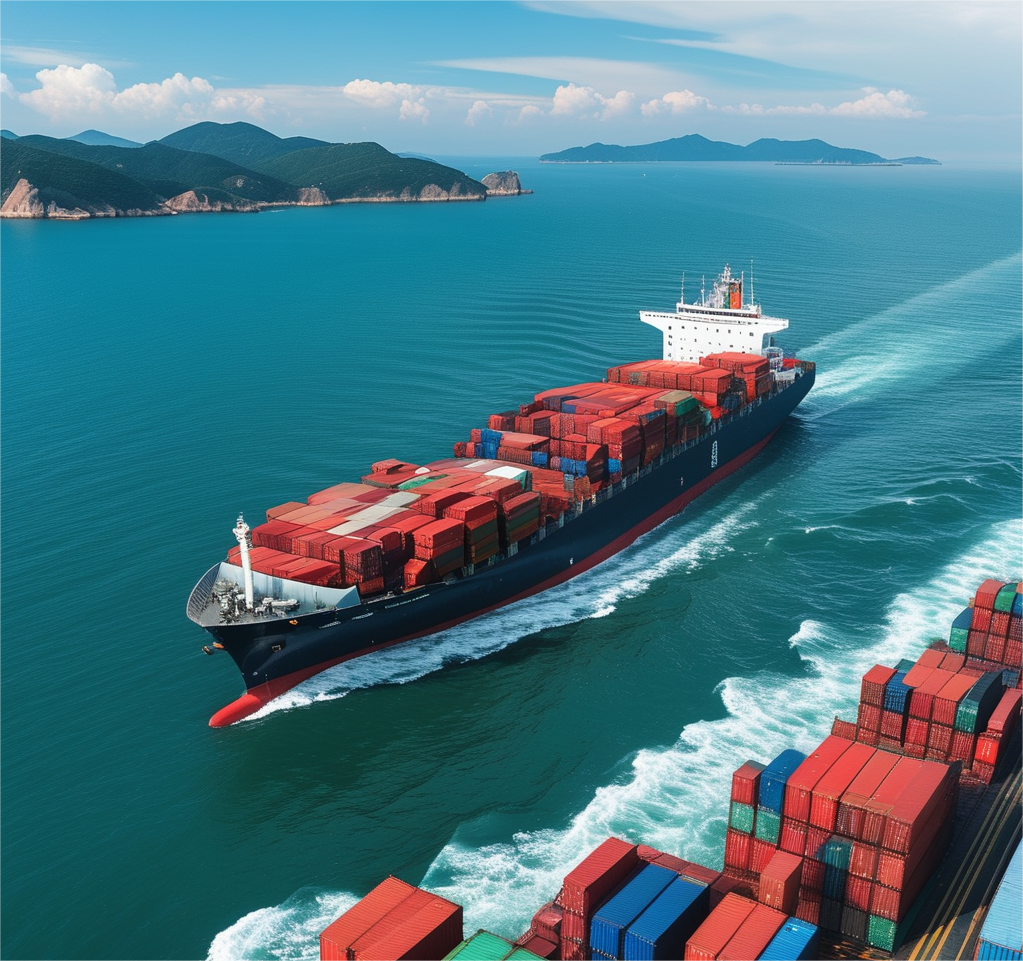When shipping halal products from China to Germany, it’s crucial to understand Germany’s strict halal product regulations to ensure smooth and compliant entry into the market. Additionally, understanding shipping logistics, container services, and ocean freight planning is key to an efficient export process. This guide will help you navigate halal product requirements, container services from Shenzhen, and ocean freight planning to Germany.
How to Comply with Germany Halal Product Laws
Germany, as a major European hub, has a growing demand for halal-certified products, especially in the food and beverage sector. If you’re exporting halal products from China to Germany, you must comply with both German laws and Islamic dietary standards. Here’s how to ensure your halal products meet the necessary requirements:
1. Understand Halal Certification Requirements
To comply with Germany’s halal product laws, your products must be certified by recognized halal certification bodies. Certification guarantees that the products adhere to Islamic dietary laws, such as no pork, no alcohol, and proper slaughtering methods. Ensure your suppliers in China provide halal certification for raw materials and final products.
2. Halal Labeling
Halal products must be clearly labeled, with the certification mark visible on packaging. Ensure that the halal certification body’s logo is displayed on the product label and that the label includes relevant product details in both German and English.
3. Avoid Cross-Contamination
Germany’s halal laws require products to be free from cross-contamination with non-halal items. This includes ensuring halal products are stored and transported separately from non-halal items in warehouses and shipping containers. Work closely with your logistics provider to ensure this segregation.
4. Shipping Halal Products to Germany
When exporting halal products, ensure that they are handled according to halal guidelines during transport. This includes using appropriate containers and ensuring that transportation practices adhere to the halal standards, from the origin point in China to the final destination in Germany.
Germany Container Service from Shenzhen China
Shenzhen, a major port city in southern China, is one of the primary departure points for shipments to Germany. For efficient shipping, it’s crucial to work with a reliable container service that can provide both full-container load (FCL) and less-than-container load (LCL) options. Choosing the right container service from Shenzhen ensures that your halal products are safely and timely delivered to Germany.
The most common services include:
- Full-Container Load (FCL): Ideal for large shipments where you need to fill an entire container with your goods.
- Less-than-Container Load (LCL): Best for smaller shipments, allowing you to share container space with other exporters.
Your shipping service provider should ensure the container is properly sealed and maintained to avoid contamination during transit.
Ocean Freight Planner to Germany
Planning ocean freight from China to Germany requires careful consideration of factors such as shipping routes, customs clearance, and delivery timelines. The ocean freight planner helps you optimize the shipping process by coordinating schedules and ensuring that halal products are properly managed during transport.
Here are some key steps to take when planning ocean freight:
- Route Optimization: Choose the most efficient sea routes, balancing cost and delivery speed.
- Customs Documentation: Ensure that all necessary documents, such as export declarations, certificates of origin, and halal certificates, are prepared and submitted for customs clearance.
- Shipping Schedule: Work with your freight forwarder to create a schedule that aligns with your inventory needs and deadlines.

PAA (People Also Ask)
1. How do I comply with Germany’s halal product laws when shipping from China?
To comply with Germany’s halal product laws, you must ensure that your products are halal-certified, properly labeled, and free from cross-contamination during transport. Additionally, work with a logistics provider familiar with halal shipping guidelines.
2. What container services are available from Shenzhen to Germany?
From Shenzhen to Germany, both Full-Container Load (FCL) and Less-than-Container Load (LCL) services are available. The right service depends on the size of your shipment and budget.
3. How do I plan ocean freight from China to Germany?
When planning ocean freight, consider route optimization, customs documentation, and shipping schedules. It’s important to work with a reliable freight forwarder to ensure smooth and timely delivery.
4. What is the best shipping method for halal products from China to Germany?
The best shipping method depends on your product quantity and urgency. FCL is ideal for larger shipments, while LCL is perfect for smaller shipments. Ensure that halal products are handled and transported according to Islamic dietary laws during transit.
